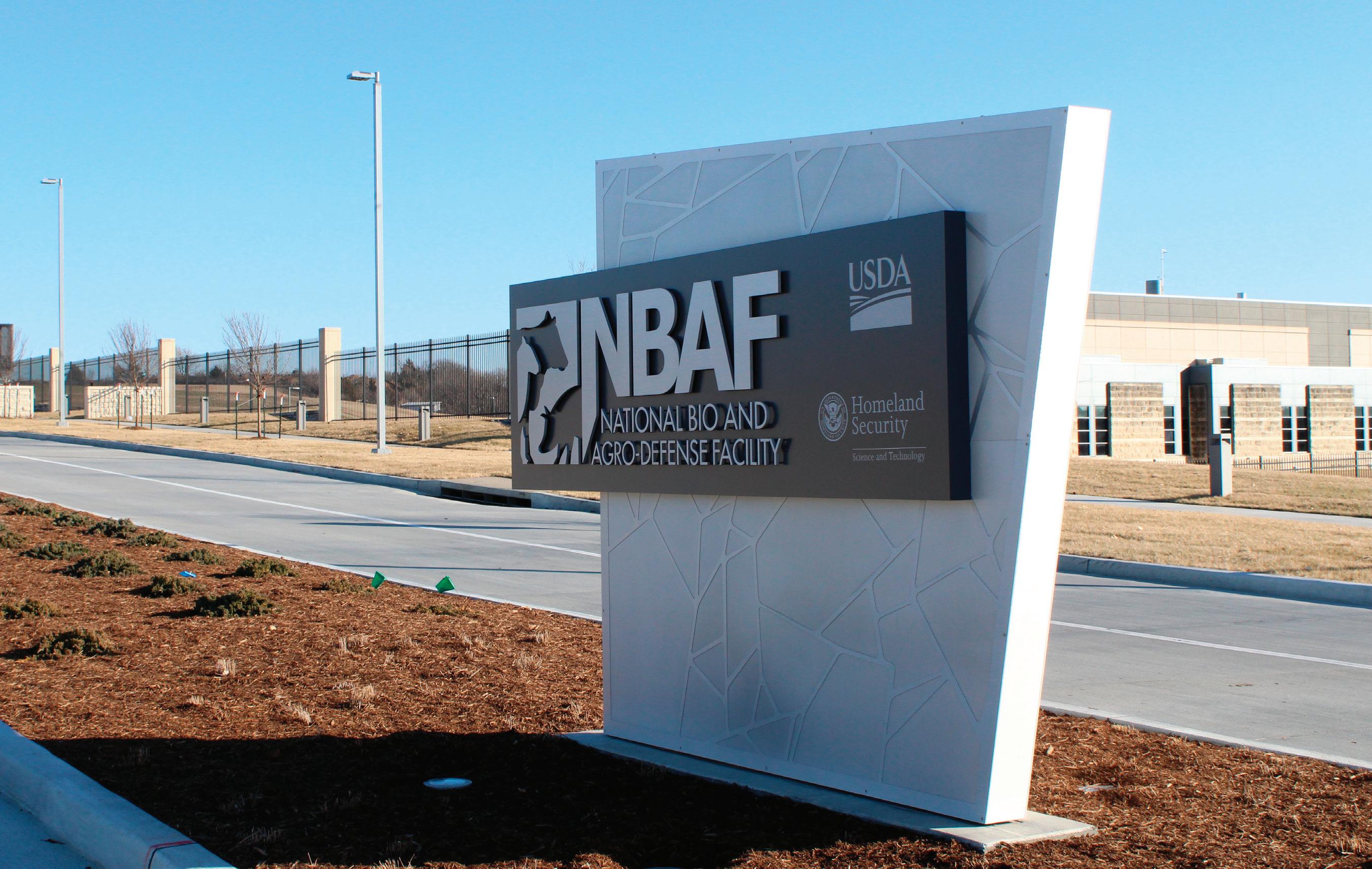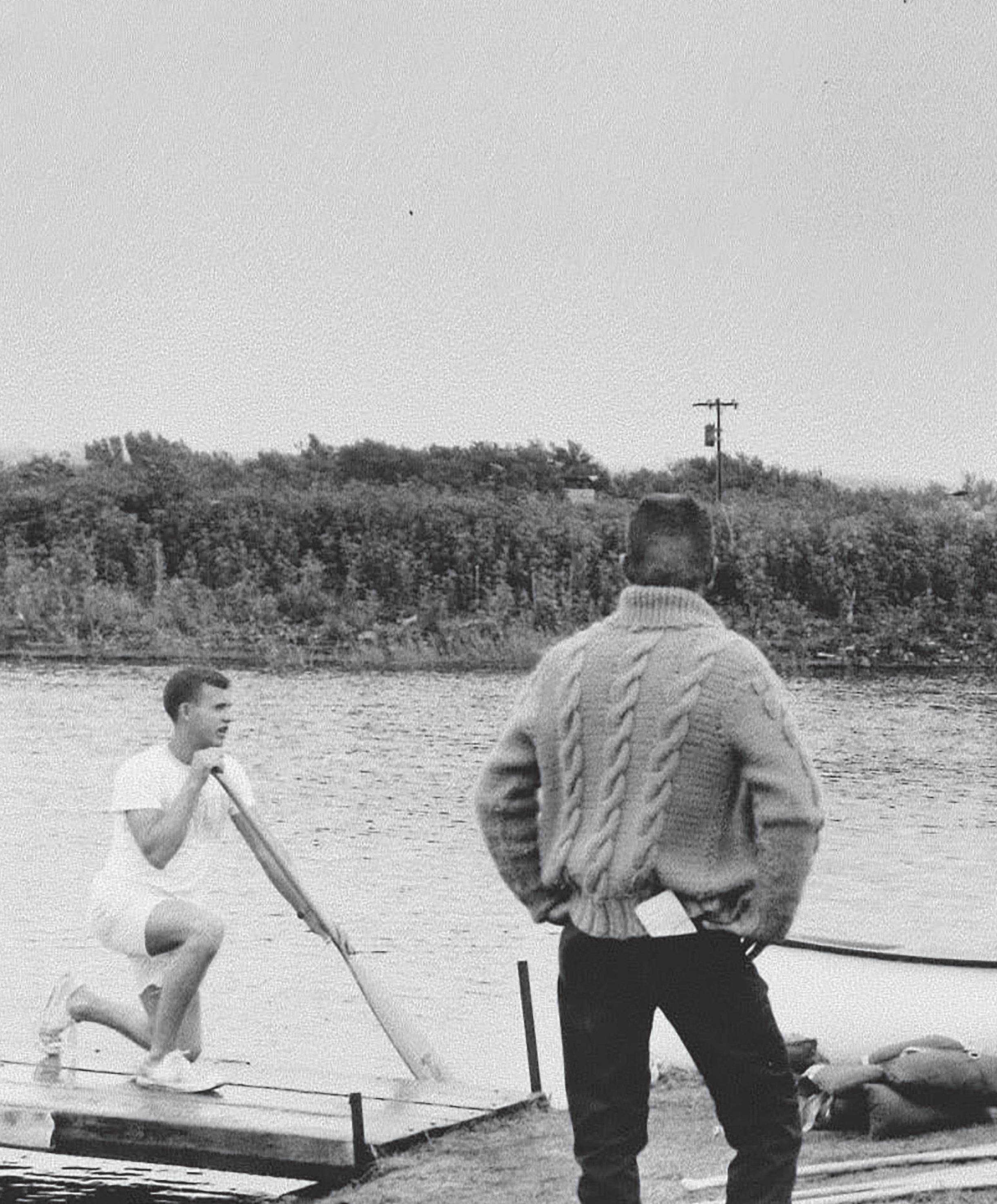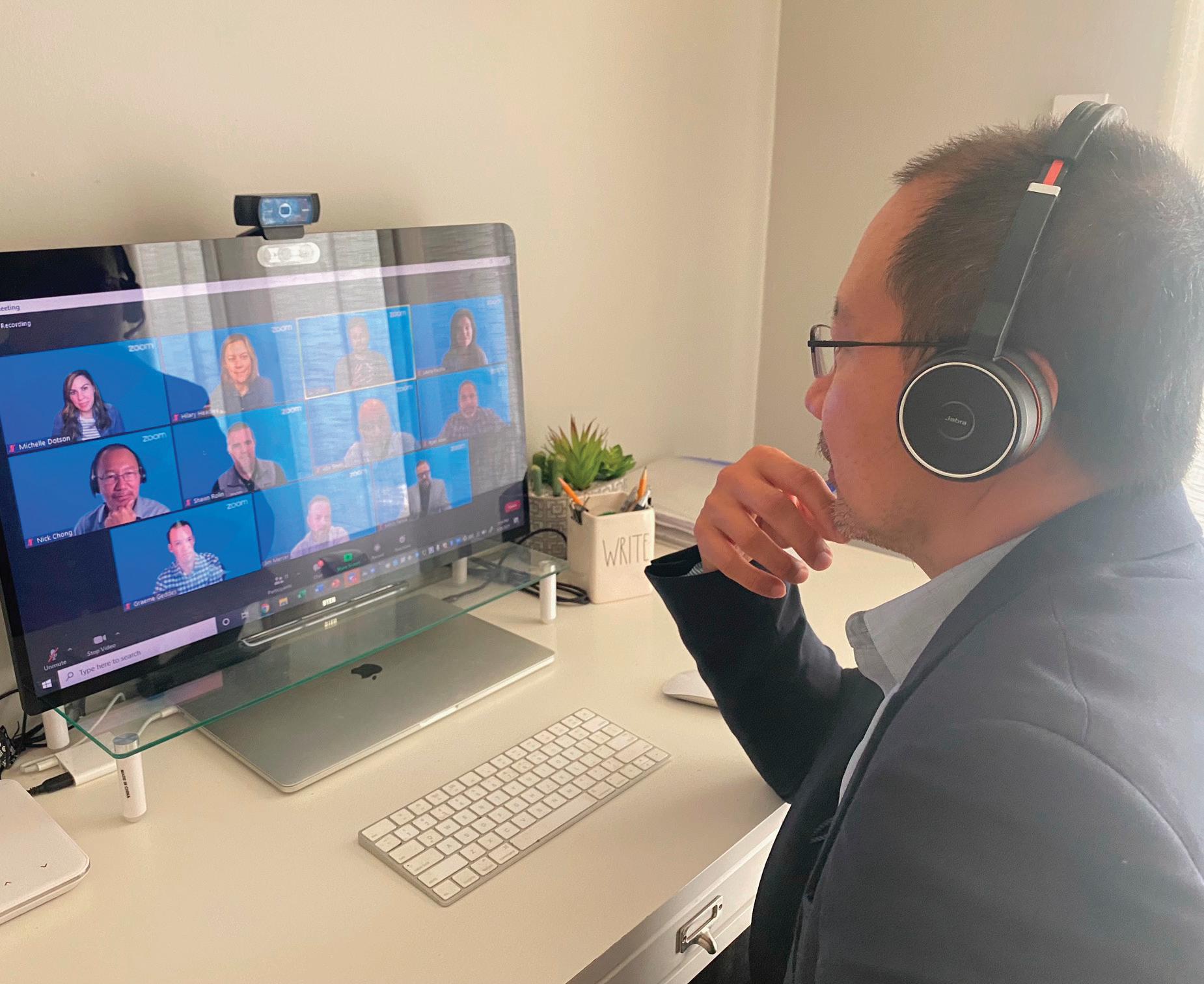
8 minute read
DRUGS FOR GUNS


Advertisement













Matt Keller ’02 fights narcoterrorism
BY TIM LINDEMUTH ’77
As a special agent, Matt Keller ’02 can fill your ears with tantalizing stories about serving search warrants, longterm surveillances and court-approved wire taps for the U.S. Drug Enforcement Administration (DEA) to bring narcotraffickers, money launderers and terrorists to justice. Likewise, he interviews international informants to track down foreign kingpins selling heroin and other drugs to purchase weapons and surface-to-air missiles. For security reasons, some details must be left to the imagination.
Now working in the United States Embassy in Paris, the nation’s oldest diplomatic mission founded by Benjamin Franklin, Country Attaché Keller liaises with his foreign counterparts as well as advises the ambassador and embassy staff on matters of drug trafficking and money laundering.
Raised in Wichita, Kansas, and earning a Kansas State University bachelor’s degree in sociology with a criminology intent and minor in anthropology, Keller joined the DEA as a special agent in 2005 and has worked in 30 countries. He advanced to his current rank in Paris in February 2020.
“Due to the strategic importance of France to narcotics trafficking and money laundering, a typical day consists of investigations conducted with the French National Police and other law enforcement departments like customs, and sharing information between our agencies,” Keller said. Leading a staff of five in the embassy, he also advises the U.S. Department of State, extradites criminals and relays reports to DEA headquarters in Washington, D.C.
Prior to his embassy assignment, he studied the French language while working in the nation’s capital.
In the United States, Keller has the authority to carry a weapon and serve warrants of arrest. In foreign countries without those powers, he works with regional authorities pursuing targets in the world for criminal prosecution. But foremost, he calls himself an investigator.
UNDERSTANDING THE UNDERWORLD
“In the complex world of transnational organized crime and specifically the drug trade, which is estimated to be worth around $400 billion per year, it takes individuals from farmers, chemists, transporters, coordinators, distributors, money launderers, bankers and lawyers to make the drug trade work,” Keller explained.
“It takes enforcement officials from local, state and federal levels, international partners, prosecutors, judges and strong citizens to ensure these criminals don’t overtake society.”
The war on terror and the war on drugs intersect in certain places and not in others.
“The drug violence in Mexico is not characterized as terrorism, according to the legal standard. However,
“It is the chase of criminals, seeing their expression when caught. I have had the pleasure of investigating targets around the world and seeing the world in that process. I have briefed ambassadors and ministerial level government officials, presented at international conferences and sat across the table from some of the worst criminals in the world.”
MATT KELLER ’02 U.S. DRUG ENFORCEMENT ADMINISTRATION SPECIAL AGENT
in places like Afghanistan, Pakistan, Syria and Lebanon, the two forces are interwoven in obvious manners – drug production and trafficking directly benefit terrorist groups,” he said.
Keller worked in the Los Angeles Field Division battling the Mexican drug cartels from 2005-2009, then the Kabul (Afghanistan) Country Office from 2009-2011. Following that, he has worked in various departments of the DEA’s Special Operations Division, including Africa, South America and the Caribbean. In 2015, he was promoted to a supervisory special agent and was moved in 2016 to the Counter Narcoterrorism Operations Center, which focuses primarily on Shia extremist groups like Hezbollah.
Drug kingpins use full-scale military operations and armaments to perpetuate their activities. In Afghanistan, for example, where 90% of the world’s heroin is grown, Keller said he and other DEA special agents worked with U.S. military, NATO forces and other coalition forces to battle the drug trade that helped fund enemy Al Qaeda and Taliban forces and other groups.
“Nothing ever occurred without our Afghan partners,” Keller said. “We worked with the Afghan National Police and other units.”
In 2010, the Department of Defense recognized Keller’s work with the Joint Civil Service Achievement Award for his direct assistance to the U.S. military.
“I was one of the main coordinators of this operation … related to an investigation of one of the largest heroin traffickers in the world at the time. The operation in southwestern Afghanistan targeted a large weapons cache this individual had buried for later use. Ten other individuals from the DEA also were given this award.”
Keller’s supervisor prior to his Paris assignment was John Fernandez, assistant special agent in charge of the Counter-Narcoterrorism Operations Center in Washington, D.C.
“Matt initiated and led significant investigations into violent organizations, powerful traffickers with a global reach, terrorists and even highprofile international criminals whose activities had national security implications,” Fernandez said. “He was the ideal selection for the country attaché assignment given his many strengths and talents as an investigator.
“He is highly intelligent, calm and collected in the most intense crises, and always demonstrated an ability to carry out effective diplomacy in the U.S.’ and our allies’ interests,” Fernandez said.
In such a high-tension job, what are Keller’s most satisfying aspects of the work?
“It is the chase of criminals, seeing their expression when caught. I have had the pleasure of investigating targets around the world and seeing the world in that process. I have briefed ambassadors and ministerial level government
Photos courtesy of Matt Keller ’02

Matt Keller’02 with his wife,Carla, and, son,, Enzo. Keller has fought drug trafficking globally.


officials, presented at international conferences and sat across the table from some of the worst criminals in the world,” Keller said.
“Those individuals make James Bond villains seem tame.”
IT BEGAN AT K-STATE
Keller graduated from Kapaun Mt. Carmel Catholic High School in Wichita and enrolled at K-State in 1998. He lived at the Pi Kappa Phi house, and in the summer of 2000 bicycled 2,500 miles across the U.S. with the fraternity’s philanthropic event, Journey of Hope, to create understanding for people with disabilities.
A campus leader winning election to Student Senate representing the College of Arts and Sciences, he also was president of the Criminology Club.
“We were a small group of students interested in careers in law enforcement,” Keller recalled.
A K-Stater who had a profound impact on him was Sue Williams, associate professor of sociology and criminology.
“She was tough, loved a good debate, but was comfortable enough in her beliefs that she could allow for healthy arguments,” Keller said.
Williams said they have stayed in contact professionally for 18 years, and she has followed the trajectory of his career.
“Matt was a stellar scholar in the classroom. I remember him as a strong leader with an extraordinary sense of duty to his student colleagues, to the criminology program and to the university,” she said.
As faculty adviser to the Criminology Club, she remembers the lasting impact Keller had on the program.
“He was instrumental in helping me organize and conduct the first Criminology Career Fair at K-State. We continued that activity for several years, which provided regional, state and national opportunities for our students,” Williams said.
After graduation, Keller earned a master’s degree in criminal justice at the State University of New York at Albany in 2003. He returned to Kansas and worked for the Bonner Springs Police Department. He attended the Kansas Law Enforcement Training Center in Hutchinson, Kansas, where he was elected class president.
Just two weeks after returning to police officer and patrolman duty in 2005, the DEA offered Keller a position in the Kansas City District Office. He had applied to the DEA back in graduate school. From there, it was off to the DEA Academy in Quantico, Virginia, and his first investigative assignment in Los Angeles. Keller met his wife who also was working for DEA. He and Carla were married in 2017, and they have one son, Enzo.
“My family and I arrived in Paris two weeks before COVID struck France and shut the country down. We live near the Champs-Elysees, Arc de Triomphe and Eiffel Tower, so we enjoy local walks as often as we can,” he said.
The couple created a criminology scholarship with the KSU Foundation to aid students in the Department of Sociology, Anthropology and Social Work.
“My wife and I hope we can play a part in shaping the next generation of students and help them succeed in their careers as well. Education and experiences form more well-rounded individuals and better leaders for tomorrow,” he said.
“Matt Keller is an exemplary K-State alumnus,” Williams said. “I’m not surprised at his stellar service to the people of the United States as well as to more than 30 countries across the globe.”









